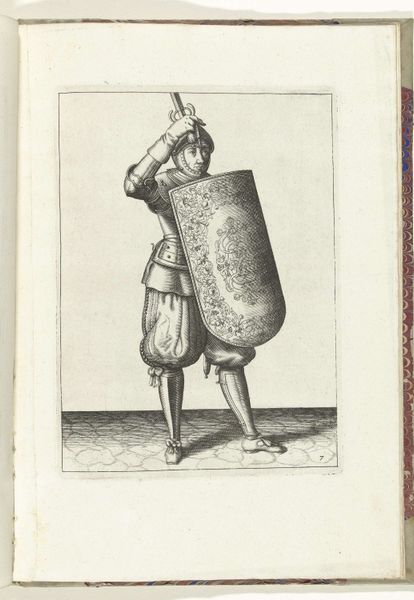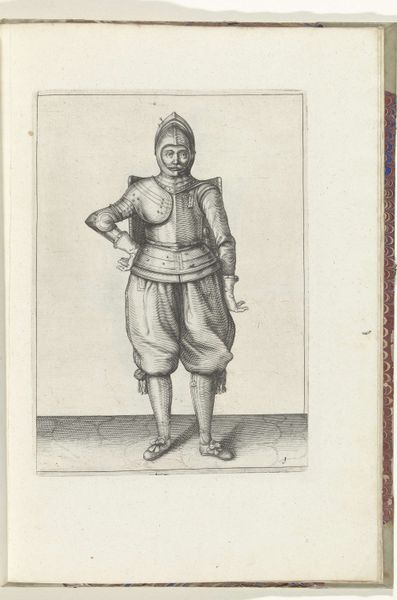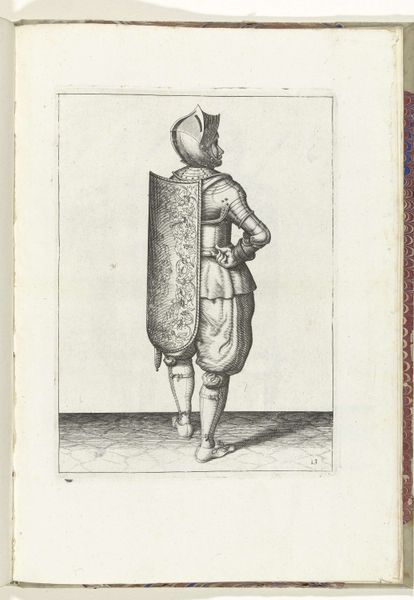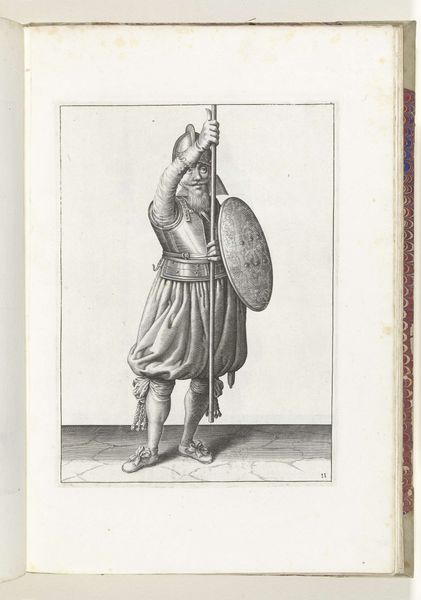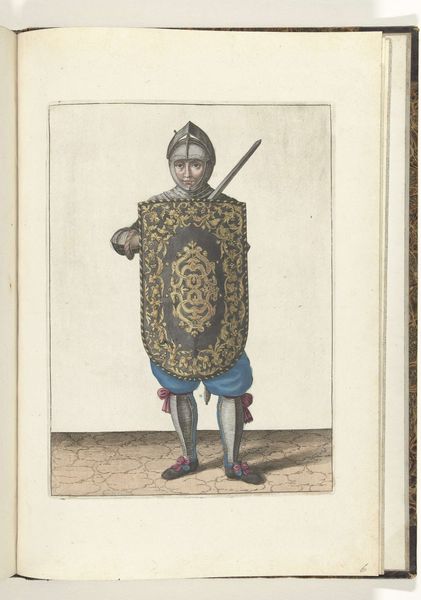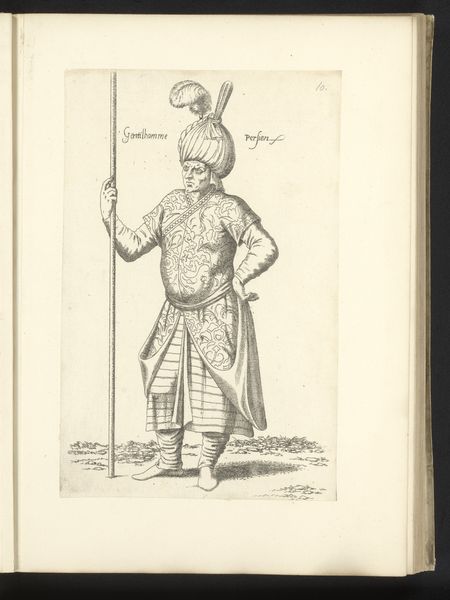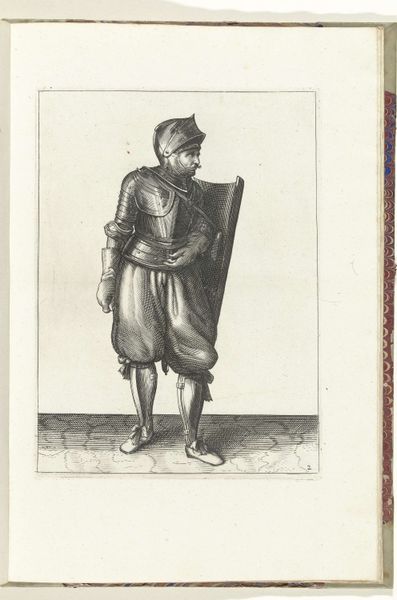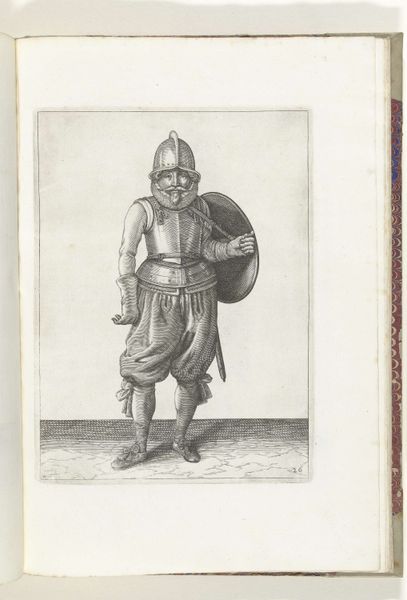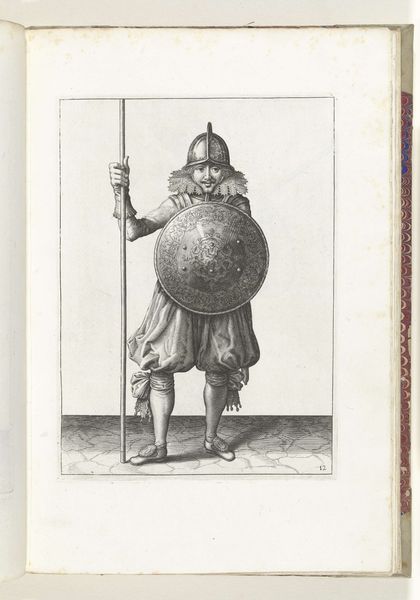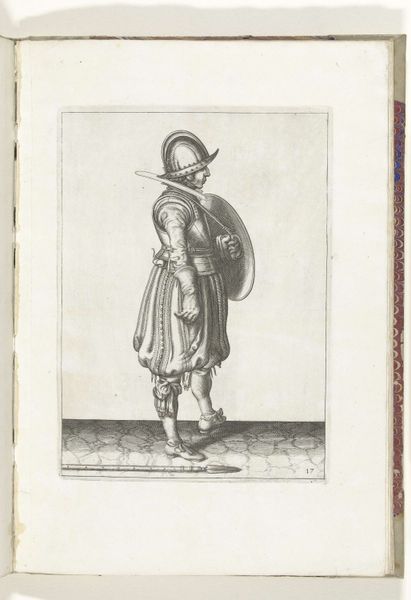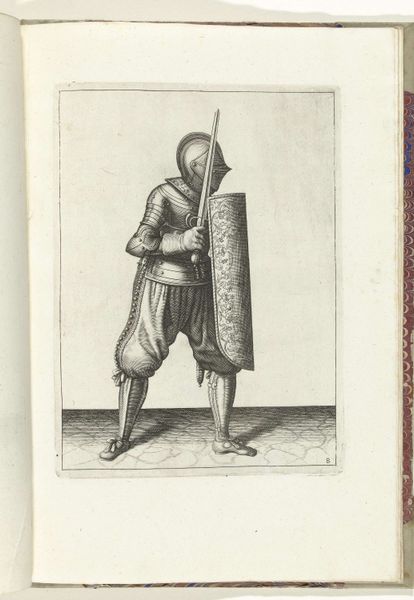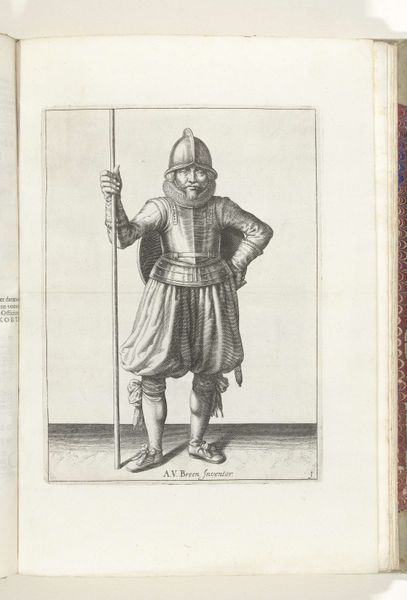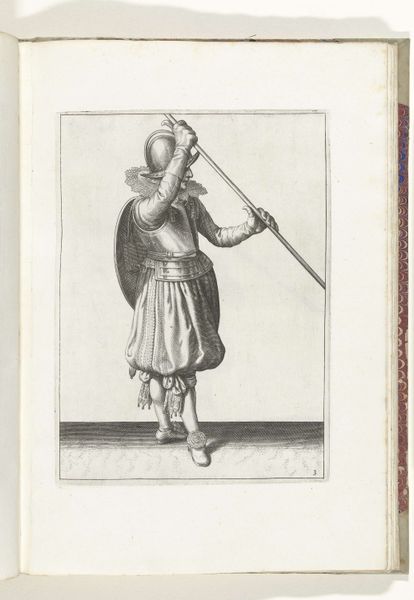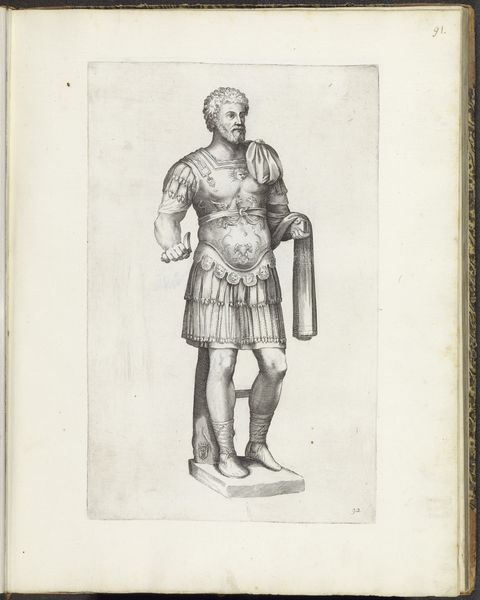
De exercitie met de targe en rapier: de soldaat houdt de targe voor de borst en de getrokken rapier tegen de linkerschouder (nr. 6), 1618 1616 - 1618
0:00
0:00
drawing, paper, ink
#
drawing
#
weapon
#
pen sketch
#
mannerism
#
figuration
#
paper
#
ink
#
history-painting
Dimensions: height 255 mm, width 187 mm
Copyright: Rijks Museum: Open Domain
Editor: Here we have "The exercise with the targe and rapier," a pen and ink drawing on paper, made between 1616 and 1618 by Adam van Breen. I'm struck by the subject's formal pose. What compositional elements stand out to you? Curator: Formally, observe how the central figure's verticality is rigidly asserted by the rectangular targe. The soldier's body becomes a structural element within the artist's composition, defined primarily by geometric forms. Editor: The targe is so ornately decorated; do you think it serves a purpose beyond simple protection? Curator: Note how the decoration of the targe complicates its form, disrupting any pure geometric reading of the overall structure. Van Breen uses curved lines and floral patterns that contrasts the right angles established by the targe. The artist has also subtly mirrored these curved patterns in the puffs of the man's breeches at his thighs. What might this emphasis on the geometric form suggest about Van Breen's engagement with Mannerist conventions? Editor: So, instead of perfectly balanced harmony, he is subtly playing with proportion to show movement? Curator: Precisely! Furthermore, consider the tension between line and form – how do the hatching and cross-hatching contribute to our understanding of volume and texture within this two-dimensional plane? Editor: That's fascinating. I never thought about the balance of geometry and decor this way, I appreciate it. Curator: Indeed, exploring the interplay of form and line offers insights into the artistic and conceptual aims that go beyond the representational function of this historical illustration.
Comments
No comments
Be the first to comment and join the conversation on the ultimate creative platform.
